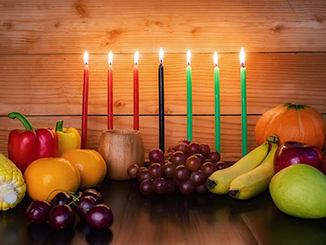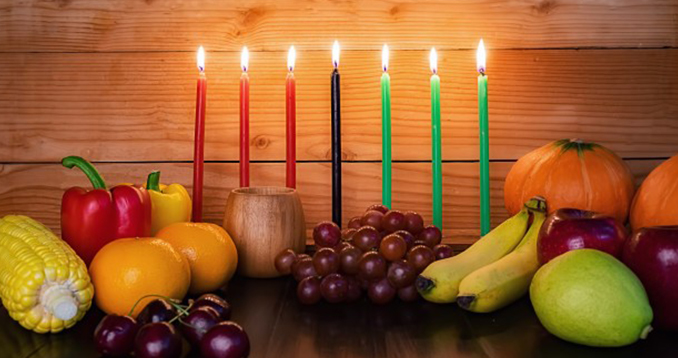

Maulana Karenga founded this unique African diasporan festival in 1966 to help people, living throughout the Americas, reconnect with their African cultural and historical heritage inspired by Umkhosi Woselwa, an annual Zulu festival. The word Kwanzaa comes from the swahili word anaza which means start. Kuanza or kwanza means to start. So Kwanzaa is a festival to start or welcome the new year which goes from December 26 to January 1st. An extra “a” was added to kwanza to reflect 7 days of Kwanzaa.
Kwanzaa is not a religious festival but it has spiritual roots with both Islamic and Christain origins reflected in the 7 principles of which are each celebrated on the 7 days of Kwanzaa as Africa has both Islamic and Christian influences.
- Umoja (Unity) December 26th: To strive for and to maintain unity in the family, community, nation, and race.
- Kujichagulia (Self-Determination) December 27th: To define and name ourselves, as well as to create and speak for ourselves. Ujamaa (Cooperative Economics): To build and maintain our own stores, shops, and other businesses and to profit from them together.
- Ujima (Collective Work and Responsibility) December 28th: To build and maintain our community together and make our brothers’ and sisters’ problems our problems and to solve them together.
- Ujamaa (Cooperative Economics) December 29th: To build and maintain our own stores, shops, and other businesses and to profit from them together.
- Nia (Purpose) December 30th: To make our collective vocation the building and developing of our community in order to restore our people to their traditional greatness.
- Kuumba (Creativity) December 31st: To do always as much as we can, in the way we can, in order to leave our community more beautiful and beneficial than we inherited it.
- Imani (Faith) January 1st: To believe with all our hearts in our people, our parents, our teachers, our leaders, and the righteousness and victory of our struggle.
Kwanzaa is observed by using kinara, a Swahili word that means candle holder. Seven candles are placed in the kinara: three red (on the left), three green (on the right), and a single black candle that’s placed in the center. The candles are called the Mishumaa, which means seven candles. Additional decor includes Mahini, which means corn and a kikombe cha umoja or a unity cup for commemorating and giving “shukrani,” which means thanks to African ancestors. These ceremonial items can be displayed on a kente cloth on a table or cabinet.

Leave a Reply